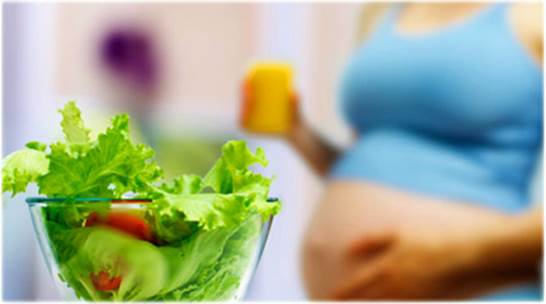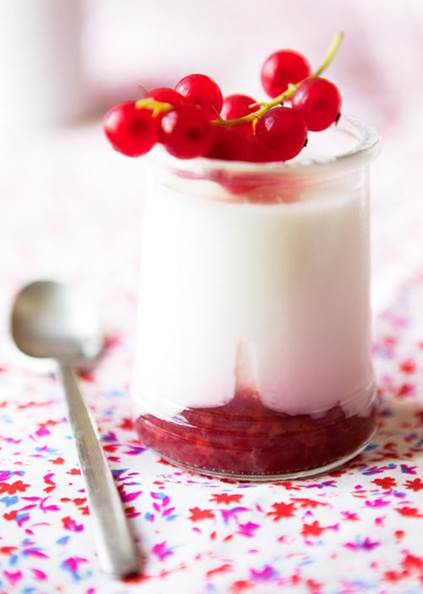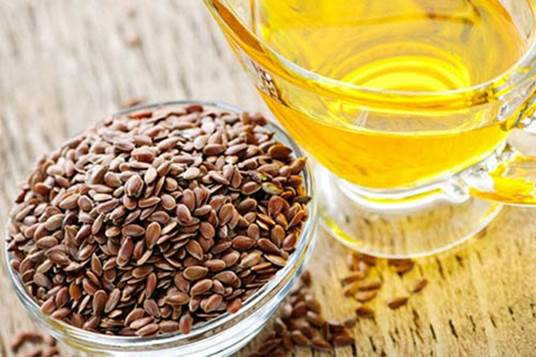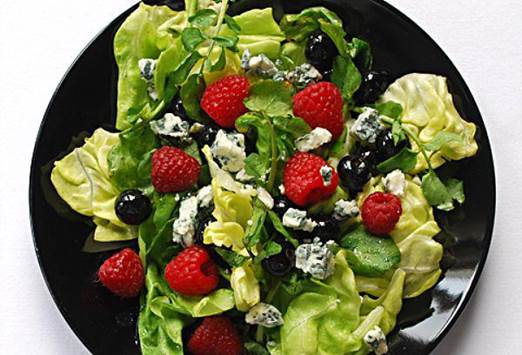You need to choose healthy and nutritious
foods.
Eating sensibly during pregnancy helps
pregnant women to maintain the best supplement of vitamins and minerals for
fetal best developments. Therein, the main food groups such as meat, fish,
seafood… have plenty of iron, protein, vitamin B12, calcium… which are
necessary for fetal developments. For that reason, there were many pregnant
women who were worried about the fact that their vegetarian eating lifestyle
can’t afford the necessary nutrients for pregnancy.
Vegetarians and the aware of nutritional deficiency
Many people think that vegetarian diet is
very good for pregnant women’s health as the pregnant will reduce the risk of
decay, obesity, hypertension, constipation, heart diseases, gestational
diabetes, cancer and kidney stones…. However, when you are pregnant, vegetarian
diet isn’t sensible and able to lead to the deficiency of essential vitamins
and minerals, which can affect fetuses.

Women
who have imbalance vegetarian diets during pregnancy can lead themselves to
lacking necessary nutrients for fetuses.
Ones of essential nutrients that can be
lack of when women have vegetarian diets during pregnancy are iron and vitamin
B12. That’s because vitamin B12 only appears in meat, fish, milk and egg, so if
pregnant women only eat vegetables, fruits and vegetarian products, they won’t
be able to provide the necessary vitamin B12 for fetuses. Lacking vitamin B12
will lead to fetal risks which are neural tube defects, macrocytic anemia,
emotional disorders, leg central moment disorder….
On the other hand, there’re many pregnant
thinking that the iron in fish and meat can be easily replaced by iron-rich
vegetables like apricot, green and black bean…. In fact, to provide an iron
amount that equals to one in meat, women have to eat about 2.5kg of green
vegetables a day. As fetuses need iron to create blood and develop organs,
providing iron during pregnancy is very important.
Vegetarian pregnant women need providing with an essential
amount of nutrients
However, not every vegetarian pregnant
woman has vitamin and mineral deficiencies. The vegetarian diets are still able
to meet the fetal need of nutrients if pregnant women take notice of the
followings.
The
vegetarian diets affords the general nutrition principles dedicated for all
pregnant women
Provide a necessary amount of iron,
calcium, folic acid, essential fatty acids like DHA, zinc, protein, vitamin B12
and calories.
Reference
vegetarian diets for a day
6-11 rations of bread, cereal and rice; 4-5
vegetable rations; over 4 fruit rations; 8 milk rations; 3-4 pea rations; 2
rations of omega-3 fatty acid (in order to provide DHA to pregnant women); use
iron and vitamin B12 pills in addition and according to prescriptions

Yogurt,
milk and milk products are sources of calcium for vegetarian pregnant women.
Use foods
that are rich in calcium
They are cheese, yogurt, soy milk, beans
and bean products, dark-green leafy vegetables, spinach, fig, sunflower seed,
sesame, orange juice, broccoli, cereal, seaweed… daily to meet the need of
100mg calcium and 400 I.U vitamin D. Besides, pregnant women can receive
vitamin D by sunbathing in the early morning 30 minutes a day (around 7-8
hours). Calcium is very necessary to pregnant women and fetuses because it is
the basis mineral for fetal bone and tooth developments.
Iron from
vegetables
A apart from taking iron pills according to
prescriptions, pregnant women can have iron supplements from vegetables, grains
like fruits, corn powder, green bean, black bean, spinach, broccoli, dried
grape, cereal, iron-fortified bread, whole-grain rice, bean and bean products
such as tofu, soy milk…. Moreover, to have better iron absorptions, you should
eat foods that are rich in vitamin C, such as red chili, strawberry, orange,
tangerine, tomato… to have yourself provided with 50mg iron a day and prevented
from anemia which is popular to vegetarian pregnant women.
Provide
acid folic
Fortunately, there’re many vegetables and
fruits that have a variety in folic acid supporting fetal neural system
developments and preventing fetuses from neural tube defects like spinal
bifida, brain abdication…. Female vegetarian should provide themselves with
foods that rich in folic acid during pregnancy, for example green vegetables,
peas, soy powder, orange, banana, coconut, broccoli, spinach and seeds….
Choose
foods that contain essential fatty acids to fetal brain’s developments such as
omega-3
The acids are often found in fishes,
though; the fishes are not allowed in vegetarian diets. For that reason,
pregnant women who are vegetarian should have omega-3 by eating foods like
alga, canola oil, green vegetables, linseed oil, walnut, peanut….

Linseeds
and linseed oil are considered to be a good source of plant omega-3 to fetuses.
Zinc
is very important to vegetarian pregnant women.
Zinc is one of the most important
micronutrients directly affecting fetal developments. Pregnant women who are
lack of zinc can have their fetuses had birth defects like hydrocephalus, anencephaly….
The zinc deficiency often happens to women mainly using vegetarian foods.
Pregnant women need about 20mg zinc a day. They absorb zinc by eating zinc-rich
foods including vitamin A, E, B6, magnesium like green vegetables, red-gold vegetables,
fruits, water spinach, spinach, watercress, carrots, tomato, pumpkin, banana….
Protein
is an essential nutrient to children.
Normally, it’s very easy to get it from the
various diets including meats, fishes and poultry which are rich sources of the
best protein. Proteins provided from animal are the high-quality ones because
they contain every amino acid that is necessary to the body. Herbal products
bring second-rate proteins because the amino acids they provide don’t belong to
the group above. Nonetheless, taking vegetarian diets make pregnant women and
fetuses only absorb the second-rate ones.
Therefore, to make sure that you have a
good source of amino acid, pregnant women should combine the main foods with
rice and corn salads. The foods that are rich in protein for pregnant women
include cereals, milk, seeds, nuts, beans, peas, lentils, corn…. Remember not
to have more than 2 bean meals a day to avoid side effects. By estimates, a
half of a bowl of beans can provide pregnant women with an amount of protein in
comparison to 84g meat.

To
prevent infections, pregnant women should avoid eating raw vegetables, fresh
fruits, soft cheese and unpasteurized milk as those foods that can lead to the
risk of Listeria, E.coli and Salmonella infections.
Take care
of the safety of vegetarian foods
To prevent infections, pregnant women
should avoid eating raw vegetables, fresh fruits, soft cheese and unpasteurized
milk as those are foods that can lead to the risk of Listeria, E.coli and
Salmonella infections which are harmful to fetuses. Besides, avoid using too
much vegetarian cheese, bread and meat… because those foods contain much of
sodium and saturated fats which are not good for pregnant women and fetuses.